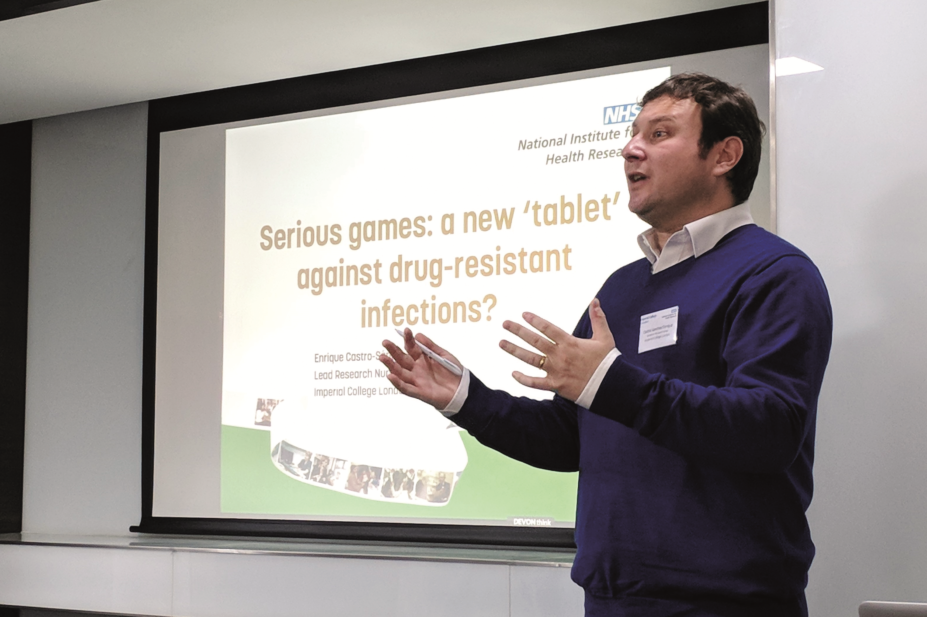
Genevieve Timmins and Ellyw Evans
A game designed to improve antimicrobial prescribing behaviour in hospitals has been developed by researchers at Imperial College London. On Call: Antibiotics, which features virtual patients in a hospital setting, requires players to diagnose and manage simulated patients while making optimal use of antibiotics.
The game is designed for use in education and continuing professional development, said Enrique Castro-Sanchez from Imperial’s National Institute for Health Research (NIHR) Health Protection Research Unit (HPRU), who led the project with funding from the HPRU. Castro-Sanchez is an academic research nurse specialising in behaviour change to improve infection prevention and antimicrobial use. “We know about antibiotic behaviours, and we know that games can be used to change behaviours,” he said. “We are trained to help patients make better decisions about their health. So we’re switching focus and helping clinicians make better decisions.”
Rather than teach the principles of optimal use of antibiotics — “people can get that kind of education from other sources” — On Call: Antibiotics focuses on changing prescribing behaviour. “The game learns from the user and adapts to their performance. The brain behind it is excellent.”
A multidisciplinary team of NHS clinicians and games developers tested the final version of the game at Imperial’s International Summit on Serious Health Games on 20 March 2018.
“We asked: where do you think the game could be used? If you were to use it in education, how would you make sure it’s effective? If you used it as part of continuing professional development, what would be a good result for people using the game?” said Castro-Sanchez.

Source: Genevieve Timmins and Ellyw Evans
The game was tested by NHS clinicians and games developers at the International Summit on Serious Health Games, held at Imperial College London on 20 March 2018
A test version of the game can be downloaded now from the HPRU website. The final version, with improved graphics and the ability to run on any platform, will be available from the same site in April 2018. The final version will be tested in two studies, one with medical students and another with hospital prescribers.
“We want to find out whether, as an educational tool, this game offers anything different to current standards. If it does, then we want to explore whether it can form part of the curriculum so that by the time medical students become doctors, they are indoctrinated to be better prescribers. For current physicians, we want to find out if it makes a difference to their prescribing.”
Although medical prescribers are currently the main user group, Castro-Sanchez — an independent prescriber himself — says that anyone managing antibiotics will find the game useful, and that future versions may focus on other healthcare sectors. “It’s not difficult to adapt the cases that appear in the game to other professions,” he added.
Although simulations have been used to train healthcare providers for many years, “it’s only now that gaming technology allows us to train people to think about, and see, behaviour change — it’s a really exciting time,” said Castro-Sanchez.


